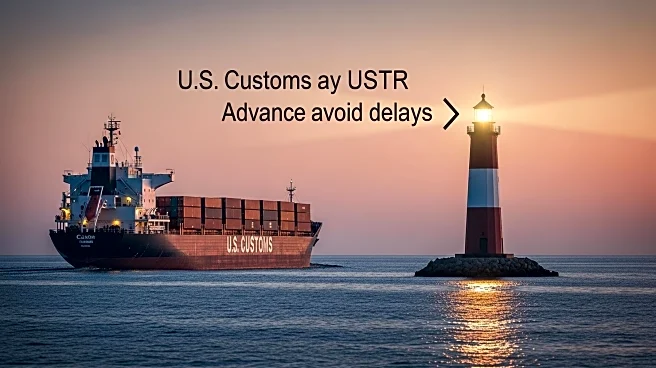What is the story about?
What's Happening?
U.S. Customs and Border Protection (CBP) has issued guidance for the upcoming USTR Section 301 Vessel Fees, targeting Chinese-owned, operated, or built ships. The fees, ranging from $50 to $18 per net ton, are due before a ship's arrival at its first U.S. port, with payments required up to five times per year. The guidance emphasizes that operators are responsible for determining and paying the fees at least three days prior to arrival. Failure to do so could result in denial of lading or unlading operations. The fees are part of a broader strategy to penalize China for its shipbuilding practices and market dominance.
Why It's Important?
The implementation of these fees could have significant financial implications for the shipping industry, with top container carriers potentially facing over $3.2 billion in fees by 2026. The policy aims to address China's influence in the shipping industry and promote U.S. interests. However, the fees could also disrupt shipping operations and increase costs for carriers, potentially affecting global trade dynamics. The ongoing U.S. government shutdown adds uncertainty, as the USTR, responsible for the program, is operating with limited staff.
What's Next?
The shipping community is awaiting further guidance, including a FAQ from the U.S. Trade Representative. Carriers are adjusting operations in anticipation of the fees, which have been delayed since April 2025. The program's long-term goals include promoting U.S.-built LNG carriers for a portion of U.S. LNG exports. The policy's impact on trade relations and the shipping industry will be closely monitored as it takes effect on October 14.

















